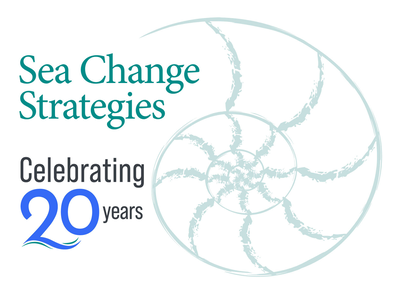Decision is a destination: How we get there is murky
Yesterday I walked into a store in my neighborhood in hot pursuit of a pair of shorts. The one pair I own is in tatters and I need a new pair. There were plenty of cute shorts on display, but while I was in the store, I got distracted…by the gorgeous summer day outside.
Rather than spend an hour — or two — finding the right shorts, I decided to walk to the park in my tattered ones and enjoy a day al fresco instead.
My behavior reminded me of this quote from ad man extraordinaire Roy H. Williams:
“Decision is a destination, a tangible place of certainty, but the multiple paths that will take us there can be faint and foggy and damp. We are confronted by choices unanticipated. We find new information, unexpected options, possibilities we did not foresee.”
Our motives evolve from second to second.
Roy goes on to give a nice overview of the science behind this evolution — something very scientifically called the “Heterogeny of Ends.”
He says, “An ongoing behavioral sequence must often be understood in terms of ever-shifting patterns of primary and secondary goals. For example, one may accept the invitation of a friend to attend an art show. Initially, the motive is simply the anticipation of a pleasant evening in good friendship, but in the course of that evening, one encounters a highly desirable work of art and wishes to purchase it. A whole new set of motives now enter the picture and exist alongside — and in addition to — the original motive.”
The takeaway for us fundraisers? Every decision-making process is unique. Modeling and statistics can only get us so far. Ultimately, the ever-shifting patterns of our donors’ motives, needs and wants win the day.
What can we do to tilt those patterns into our favor? My belief is that non profits must stop talking about what we want and start recognizing what our donors want instead. We need to create pathways that speak to these wants — and lead donors towards meaningful (to them) action and engagement. And finally, we must recognize that human beings — our actions and our motives — are not rational. We might need a pair of shorts desperately, but choose to enjoy a summer day instead.
